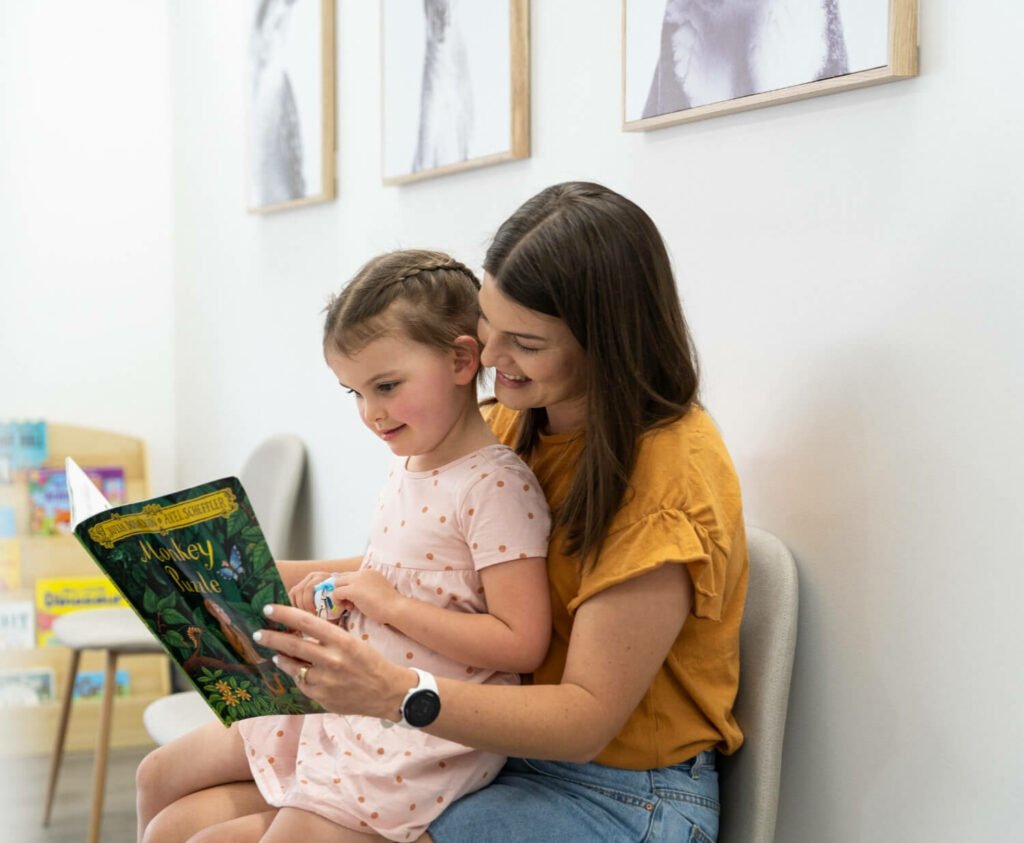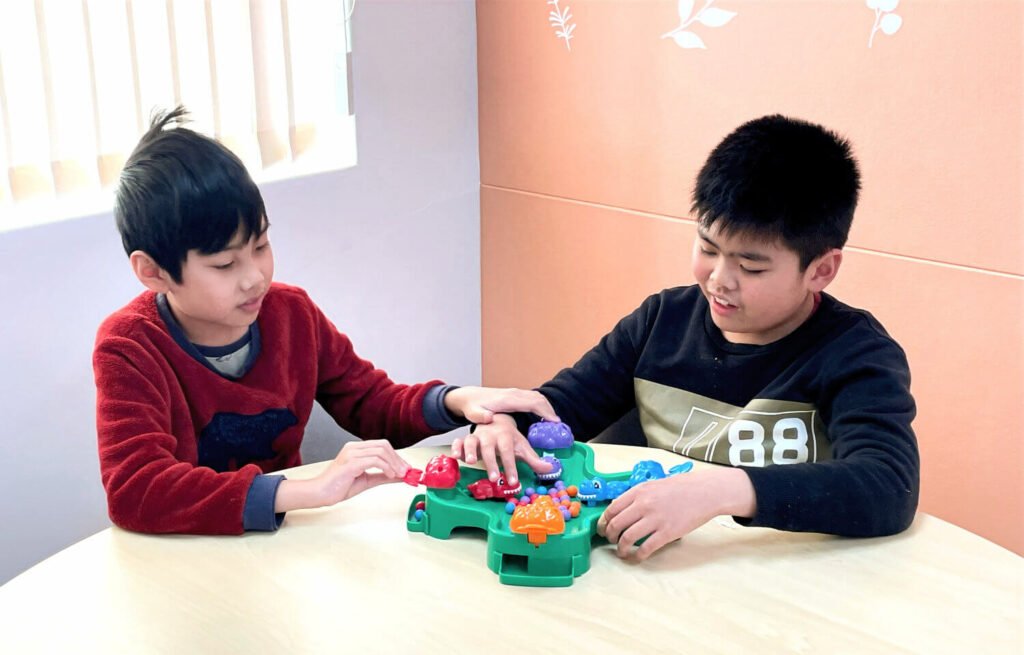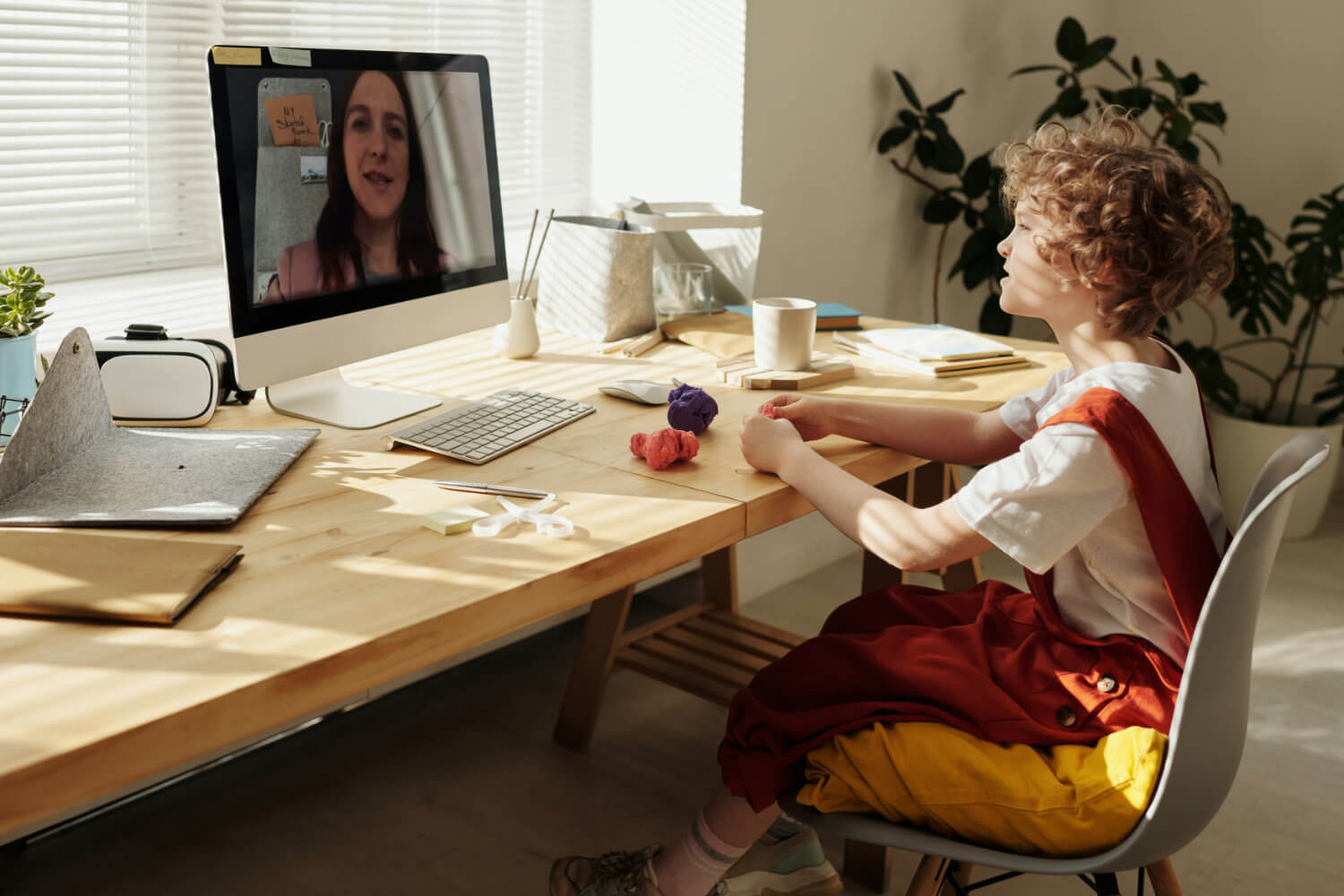One of the positive experiences to come out of the Covid-19 pandemic, is the increased use of telehealth. Our therapists are able to provide intervention to families who may not be able to attend therapy sessions due to illness, family commitments, isolation or due to their location. As both families and therapists have seen the benefits of telehealth, we are expanding our services to be able to provide intervention to more families across NSW and Australia. This is an exciting opportunity for children and families who might otherwise miss out on much needed therapy due to long waiting lists for face-to-face appointments. Below are some answers to common questions regarding telehealth.
What is telehealth?
Telehealth provides families with access to therapy with allied health professionals via a secure online platform such as Zoom. These sessions allow families to connect with therapists who can work with them to identify concerns, develop goals, and implement strategies to achieve these goals. Therapists can make use of a range of tools as well as carry out observations and provide direct instructions and parent coaching during online sessions. Telehealth can also be utilised to connect and support other therapists and educators anywhere in Australia.
What are the benefits of telehealth?
- Immediate access to therapy services Due to the online platform of telehealth, our therapists are able to book in regular sessions with families once the intake process in complete.
- Access to therapy while on waiting lists in your local area Families in regional areas are currently reporting that waitlist times for local early intervention services range between 18 months and 2 years. Some metropolitan services also have long waitlists, particularly for behaviour support.
- Convenience Telehealth provides greater flexibility for session times, and reduces the need for families to travel to see a therapist. This reduces the overall time required for the sessions, allowing more free time, and reduces child and carer fatigue.
- Therapists can observe the child in their natural environment As families do not need to travel to a clinic, observations can be made in a child’s natural environment including home, school and childcare. This provides therapists with a great insight into how your child responds in their own home where they are most comfortable. In addition, telehealth allows for greater flexibility. Difficulty with bedtime routines? Sleep, or mealtimes? Telehealth allows allied health professionals to observe the child during these challenging times when needed, which is often not possible in person.
- NDIS Funded Telehealth services are covered by NDIS funding. In addition, the costs of therapy can be reduced as sessions do not require travel charges. This allows families to access a greater number of direct support sessions from therapists. In many cases this means children and families can access twice as many sessions using a telehealth model.
- Parent coaching Telehealth enhances the parent coaching aspect of therapy, which is a vital part of intervention. Parents report a greater sense of empowerment, which increases their ability to apply strategies to daily routines, resulting in increased outcomes for children and families.
Who can benefit from Telehealth?
- Any parent, carer or educator with concerns regarding their child’s development or behaviour.
- Children who require support from an allied health professional for their play, learning, communication, social skills and behaviour.
Telehealth is individualised to suit the needs of the family and child. This means your child is not required to sit in front of the screen to participate in telehealth. Therapists have a range of tools and strategies to engage children, while parent coaching and participation enhances engagement. Parents, educators and carers are also able to access one-on-one telehealth sessions to discuss concerns and work with therapists to develop strategies to support their child’s learning, skills development and behaviour. Children do not need to be present for these sessions. Telehealth services are covered by NDIS funding for NDIS participants, and can be accessed from home, schools and community settings.
What equipment do I need?
- A stable internet connection.
- Access to an iPad / tablet, or computer with working video and sound.
Some community centres, libraries and education settings can also provide access to this equipment for families who do not have access at home.
If you would like further information on how our therapists can assist you and your child through our telehealth services, please contact our clinic on 0434 527 560 or email [email protected]
You can find additional information regarding research on Telehealth using the resources below.
Report on the Use of Telehealth in Early Intervention in Colorado: Strengths and Challenges with Telehealth as a Service Delivery Method
https://www.ncbi.nlm.nih.gov/pmc/articles/PMC6597149/
TelePBS research project. NDIS report
https://www.ndiscommission.gov.au/sites/default/files/documents/2021-07/telepbs-research-project-report.pdf
Kiersten Jerrett
Early Intervention Specialist Telehealth Practitioner





